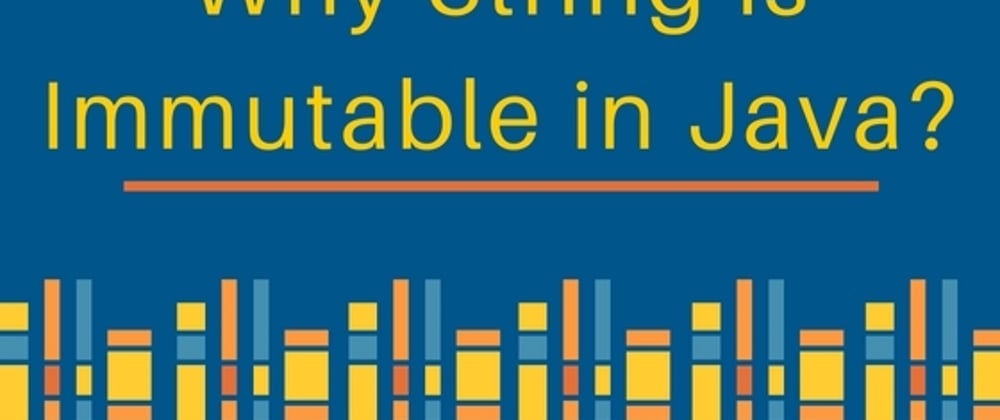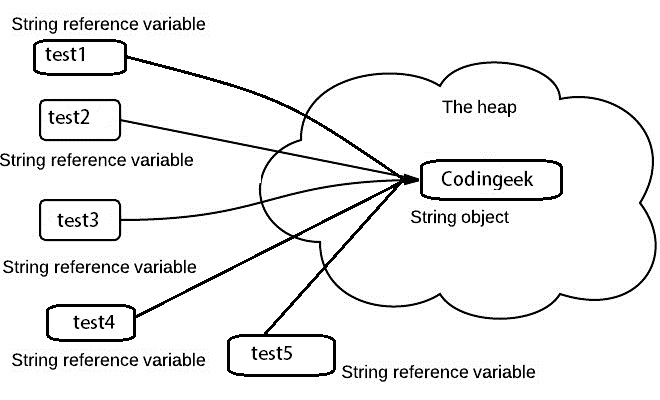Why Are Strings Immutable in Java? Comprehending the Core Concepts
Why Are Strings Immutable in Java? Comprehending the Core Concepts
Blog Article
Immutable Strings: A Trick Component in Ensuring Data Consistency and Integrity
In the realm of data administration, the significance of immutable strings can not be overstated. These constant sequences of characters play a critical role in promoting the honesty and precision of information within systems. By maintaining a state of immutability, information uniformity is guaranteed, fostering a foundation of dependability upon which vital procedures count. The idea of unalterable strings goes beyond mere formality; it is a linchpin in the complex web of data administration. As we check out the benefits, application techniques, and practical applications of unalterable strings, a clearer image arises of their essential nature in securing the electronic landscape.
The Principle of Unalterable Strings
Unalterable strings, an essential principle in shows, describe strings that can not be changed as soon as they are created. Essentially, when a string worth is appointed, any type of operation that appears to change the string really develops a brand-new string. This immutability guarantees data uniformity and integrity in applications, as it stops unforeseen adjustments to the initial information.
Advantages in Information Uniformity
Data consistency is critical in various aspects of software program advancement, including database monitoring, multi-threaded environments, and distributed systems (Why are strings immutable in Java?). Immutable strings add dramatically to achieving this consistency by avoiding data corruption because of simultaneous access. In situations where multiple procedures or strings interact with the very same information concurrently, unalterable strings work as a secure versus race conditions and synchronization problems
Moreover, the immutability of strings simplifies debugging and testing processes. With immutable strings, developers can trust that as soon as a string is set, it will certainly remain the same, making it simpler to map the source of errors and making sure that examination cases generate consistent outcomes. This integrity in data managing inevitably brings about more steady and robust applications.

Implementing Unalterable Strings
Making certain the immutability of strings requires a thoughtful strategy to their execution in software program development. Once a string item is developed, one crucial approach is to design string classes in a means that stops adjustments. By making strings unalterable, programmers can improve information uniformity and dependability in their applications.
To implement unalterable strings efficiently, designers must favor developing new string things instead than modifying existing ones. This technique makes certain that when a string is assigned a value, it can not be altered. In addition, any operation that appears to change the string should create a brand-new string with the wanted modifications as opposed to modifying the initial.
Furthermore, making use of immutable strings can simplify concurrency management in multi-threaded atmospheres. Since unalterable strings can not be changed after creation, they can be safely shared amongst several strings without the risk of data corruption.
Role in Integrity Assurance
In software development, the utilization of immutable strings plays a vital function in making certain the integrity of information operations. Unalterable strings, when created, can not be customized, ensuring that the data they stand for stays consistent throughout the application's implementation. This immutability residential or commercial property provides a level of assurance that the data being refined will not be unintentionally altered, causing unanticipated end results or errors in the system.
By integrating unalterable strings into software application design, programmers can enhance the integrity of their applications by reducing the risks related to mutable information - Why are strings immutable in Java?. Unalterable strings assist in stopping information corruption or unintentional adjustments, which can be particularly essential when managing delicate details or when data stability is critical
Furthermore, using unalterable strings streamlines concurrent look at this site processing, as numerous threads can safely gain access to and share string data without the risk of one string altering the content while another reads it. This aspect adds dramatically to the general integrity of the software system, making certain regular and predictable habits in data managing operations.
Applications and System Combination
The seamless combination of immutable strings into numerous applications and systems is crucial for making certain robust data uniformity and dependability throughout diverse technical environments - Why are strings immutable in Java?. Unalterable strings play an essential role in enhancing the integrity of data exchanges and interactions within complicated software application communities. By including immutable strings into applications, programmers can alleviate the dangers related to data tampering, unapproved modifications, and unintentional alterations, thereby strengthening the overall safety pose of the system
In the context of system combination, immutable strings work as a foundational element for developing safe communication channels and helping with seamless information transfers in between various elements. Their immutable nature makes certain that information transmitted in between systems continues to be the same and verifiable, minimizing the likelihood of variances or mistakes that might compromise the honesty of the whole system. Additionally, unalterable strings can improve interoperability in between inconsonant systems by supplying a standardized layout for data depiction, allowing extra efficient information processing and exchange methods across interconnected systems. By embracing unalterable strings in applications and system combination procedures, organizations can strengthen their data infrastructure and support the dependability and consistency of their information assets.
Final Thought
Finally, unalterable strings play an important function in keeping his comment is here information consistency and dependability in various applications and system assimilations. By making certain that strings can not be transformed when created, the stability of data is maintained, lowering the threat of mistakes and inconsistencies. Executing unalterable strings can considerably enhance the integrity of systems, eventually causing more trustworthy and precise information handling.

Report this page